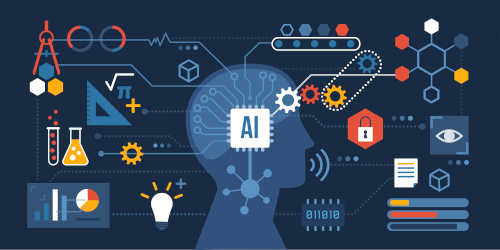Challenges in Game Design and Development Careers
Professionals in the game design and development industry encounter several common challenges that can impact their careers:
- Balancing Fun with Educational Value: In serious game development, striking a balance between the enjoyment of gameplay and educational content is crucial. Designing visually appealing games with clear learning objectives helps harmonize entertainment and educational value.
- Choosing the Right eLearning Platforms: Selecting suitable eLearning platforms for serious games is essential. Factors such as online or offline functionality, compatibility with various devices, and integration with Virtual Reality need careful consideration to tailor the development strategy effectively.
- Releasing Content to Learners: Timing the release of learning content to employees without disrupting their schedules is vital. Gradual release of game levels and the ability for learners to save progress promote engagement and offer flexibility in learning.
- Managing High Costs: Developing serious games often incurs significant expenses. Finding cost-efficient solutions, whether through utilizing low-cost platforms or opting for custom game development, requires meticulous planning and alignment with learning objectives.
- Defining Learning Outcomes: Understanding employees’ desired learning outcomes and identifying skill gaps is critical for effective serious game development. Conducting surveys, meetings, and discussions with staff members aids in aligning game objectives with educational goals.
- Designing Bite-Sized Modules: Breaking down information into smaller, digestible modules enhances employee knowledge retention and facilitates practical application of learned concepts. This approach promotes effective learning outcomes and engagement with the game content.
The challenges highlighted underscore the intricacies faced by professionals in the game design and development industry, underscoring the importance of strategic planning, creativity, and adaptability in overcoming obstacles and crafting captivating gaming experiences.
AI’s Emergence in Game Design and Development
AI is ushering in opportunities in the game design and development sector by augmenting various facets of game creation, including game design, AI-driven narrative generation, and game testing. By leveraging AI, developers can enhance gameplay dynamics, streamline the development process, and facilitate iterative improvements.
Nevertheless, integrating AI presents its own set of challenges, encompassing concerns related to intellectual property, strategic implementation, and talent management. Developers must navigate these hurdles diligently to ensure ethical and responsible utilization of AI’s capabilities.
Moreover, the inadvertent exposure of unreleased or confidential content to AI during training poses a fresh area of concern, necessitating vigilant oversight to safeguard proprietary information.
In essence, while AI offers promising avenues for innovation and efficiency in game design and development, careful consideration and proactive measures are essential to maximize its benefits while mitigating potential risks.
Preparing for the Impact of AI on Game Development Careers
Game developers can proactively prepare for the influence of AI on their careers by adopting several key strategies:
- Stay Informed: Developers should stay abreast of AI trends within the gaming industry to comprehend how AI is reshaping game development roles and procedures.
- Acquire AI Skills: Gaining proficiency in AI tools and technologies relevant to game development equips developers to effectively integrate AI into their projects.
- Understand the Evolving Role: With AI assuming a more prominent role in game development, developers must adapt to the evolving landscape. They should grasp how to collaborate with AI algorithms, shaping gameplay experiences and interactions with players.
- Prepare for Job Displacement: Developers should acknowledge the potential for job displacement resulting from automation in tasks such as content generation or testing. They may need to explore retraining options and redeploy their workforce to align with the changes brought about by AI adoption.
- Balance Creativity with Automation: While AI can automate tasks and streamline processes, developers should strive to leverage AI to enhance creativity, storytelling, and gameplay mechanics. Rather than solely relying on automation, they should prioritize utilizing AI as a tool to augment their creative endeavors.
By adopting these strategies, game developers can effectively navigate the evolving landscape of game development, harnessing the potential of AI while safeguarding their careers in the industry.
By actively embracing AI technologies, comprehending their impacts on the gaming sector, and adjusting their skills and methodologies accordingly, game developers can position themselves to excel in a future where AI assumes a progressively pivotal role in game design and development.
Game developers balance the need for realism with the need for fun and engaging gameplay through several approaches:
- Realism vs. Fantasy: Developers blend elements of realism and fantasy to ensure the game remains grounded yet immersive. This involves incorporating realistic physics and mechanics alongside fantastical elements to maintain a balance between believability and excitement.
- Player Expectations: Understanding player preferences and expectations is crucial. Developers tailor gameplay mechanics and storylines to meet these expectations, considering whether players desire a realistic approach or prefer fantastical elements.
- Immersion: Creating a sense of immersion is essential for player engagement. Realistic graphics, sound design, and physics, coupled with compelling stories and choices, enhance immersion and keep players invested in the game world.
- Gameplay Mechanics: Designing challenging and rewarding gameplay mechanics is key to retaining player interest. Developers incorporate elements of skill, strategy, and exploration while ensuring players feel a sense of accomplishment and progression.
- Iteration and Feedback: Regular iteration and gathering feedback from players, testers, and developers are essential. This iterative process allows developers to refine gameplay, adjust difficulty levels, and incorporate player suggestions to enhance the overall gaming experience.
By carefully considering these factors and principles, game developers can strike a balance between realism and fun, creating immersive and engaging gameplay experiences for players.
In the age of AI, game developers have a plethora of potential career paths that align with the advancements in artificial intelligence technology:
- AI Programmer: AI programmers play a pivotal role in giving games their “brain” by creating algorithms that govern character behavior and game elements based on individual player interactions. They focus on elements like pathfinding, group movement, and camera control, enhancing gameplay strategy through decision trees and neural networks. AI programmers require expertise in AI technologies, problem-solving abilities, and a deep understanding of gameplay nuances to seamlessly cater to individual player experiences.
- Business Analyst or Data Engineer: Game developers can transition into roles focused on gaining insights from data. AI’s strength lies in efficiently gathering, cleaning, and parsing large datasets, streamlining tasks traditionally performed by data analysts. Transitioning into roles that involve interpreting data insights or focusing on the engineering side of data analysis enables developers to stay relevant in the evolving landscape of AI-driven game development.
- Quality Assurance Director: AI is transforming roles in quality assurance by automating tasks like content generation and testing. While AI won’t eliminate the need for software and game testers entirely, it will reshape the role and reduce job numbers. Testers can enhance their career prospects by embracing new skills like test design techniques and creating test scenarios to adapt to the changing demands brought about by AI advancements.
- Complex Project Manager: As AI continues to influence game development processes, developers can explore roles in managing complex technical projects. Complex project managers are crucial for strategic planning, establishing priorities, and building trust with stakeholders – tasks that require a blend of technical expertise and leadership skills that AI cannot fully replicate. These roles are essential for overseeing intricate projects effectively and ensuring their successful execution.
In summary, game developers have a range of career paths to explore in the age of AI, spanning specialized roles like AI programmers to roles focusing on data analysis, quality assurance, and project management. Adapting to the impact of AI on the gaming industry opens up new opportunities for developers to leverage their skills in innovative ways and remain relevant in a rapidly evolving technological landscape.
The current job market outlook for AI game developers reflects the rapid evolution of artificial intelligence within the gaming industry, amidst broader fluctuations in the games sector. While there have been instances of layoffs in the games industry since the first quarter of 2024, the demand for AI game developers remains robust.
Statistics indicate a positive job outlook for video game designers since 2019, with an expected increase in demand and job vacancies. The employment landscape for game developers globally has shown fluctuations, with varying percentages of employment and self-employment from 2015 to 2021. Moreover, the AI in video games market is projected to grow significantly, reaching $11.4 billion globally by 2032, driven by advancements in AI integration and network connectivity.
In terms of specific roles and salaries, AI gaming developers command an average salary ranging from $80,000 to $110,000 per year, reflecting their crucial role in enhancing gameplay experiences. AI data engineers, another key role, earn an average salary between $100,000 and $130,000 per year, underscoring the demand for professionals who can innovate and improve gaming experiences through AI technologies.
However, concerns exist among developers regarding the ethical implications of AI in game development. The Game Developers Conference (GDC) survey revealed apprehensions about AI potentially replacing workers, exacerbating layoffs, and data scraping without consent. Differing sentiments were observed based on job types, with technical roles viewing AI positively and creative roles expressing concerns about its potential negative impact.
In conclusion, AI is revolutionizing job opportunities within the game design and development industry, presenting both challenges and opportunities for professionals. While automation may affect entry-level positions, higher-skilled roles requiring creativity and problem-solving abilities are expected to thrive as AI enables developers to focus on more intricate aspects of game development. Navigating this evolving landscape requires a balance of adaptation, innovation, and ethical considerations to harness the full potential of AI in game design and development.







